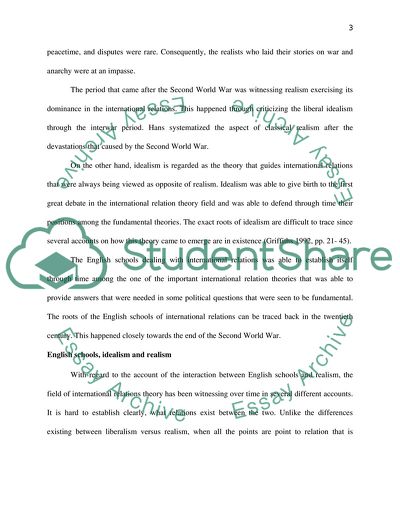Cite this document
(The English School between Realism and Idealism Coursework Example | Topics and Well Written Essays - 2000 words, n.d.)
The English School between Realism and Idealism Coursework Example | Topics and Well Written Essays - 2000 words. https://studentshare.org/social-science/1848826-is-the-english-school-approach-to-international-relations-best-considered-a-form-of-realism-a-version-of-idealism-or-does-it-represent-the-third-way
The English School between Realism and Idealism Coursework Example | Topics and Well Written Essays - 2000 words. https://studentshare.org/social-science/1848826-is-the-english-school-approach-to-international-relations-best-considered-a-form-of-realism-a-version-of-idealism-or-does-it-represent-the-third-way
(The English School Between Realism and Idealism Coursework Example | Topics and Well Written Essays - 2000 Words)
The English School Between Realism and Idealism Coursework Example | Topics and Well Written Essays - 2000 Words. https://studentshare.org/social-science/1848826-is-the-english-school-approach-to-international-relations-best-considered-a-form-of-realism-a-version-of-idealism-or-does-it-represent-the-third-way.
The English School Between Realism and Idealism Coursework Example | Topics and Well Written Essays - 2000 Words. https://studentshare.org/social-science/1848826-is-the-english-school-approach-to-international-relations-best-considered-a-form-of-realism-a-version-of-idealism-or-does-it-represent-the-third-way.
“The English School Between Realism and Idealism Coursework Example | Topics and Well Written Essays - 2000 Words”. https://studentshare.org/social-science/1848826-is-the-english-school-approach-to-international-relations-best-considered-a-form-of-realism-a-version-of-idealism-or-does-it-represent-the-third-way.


